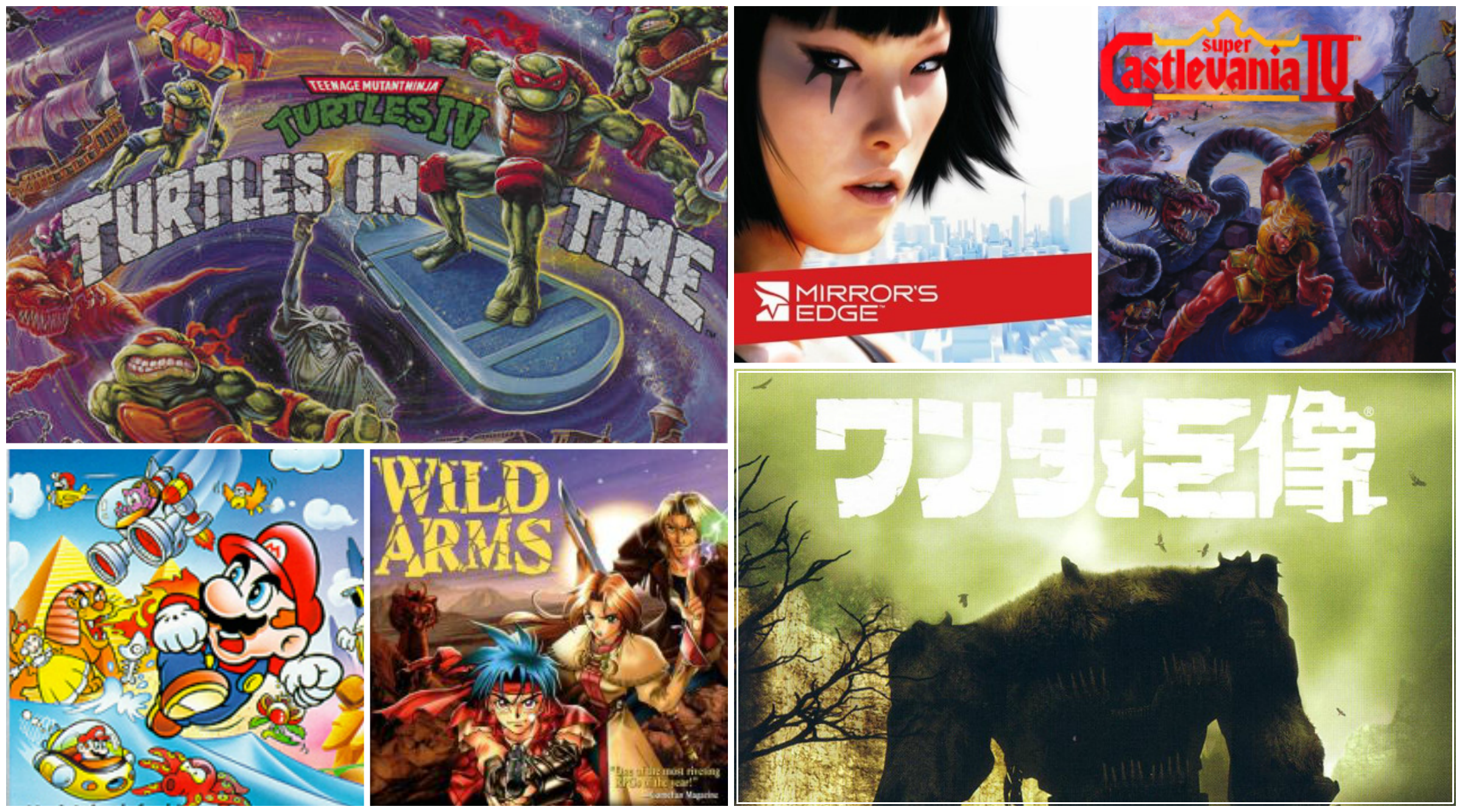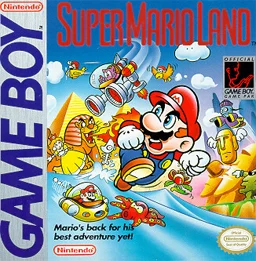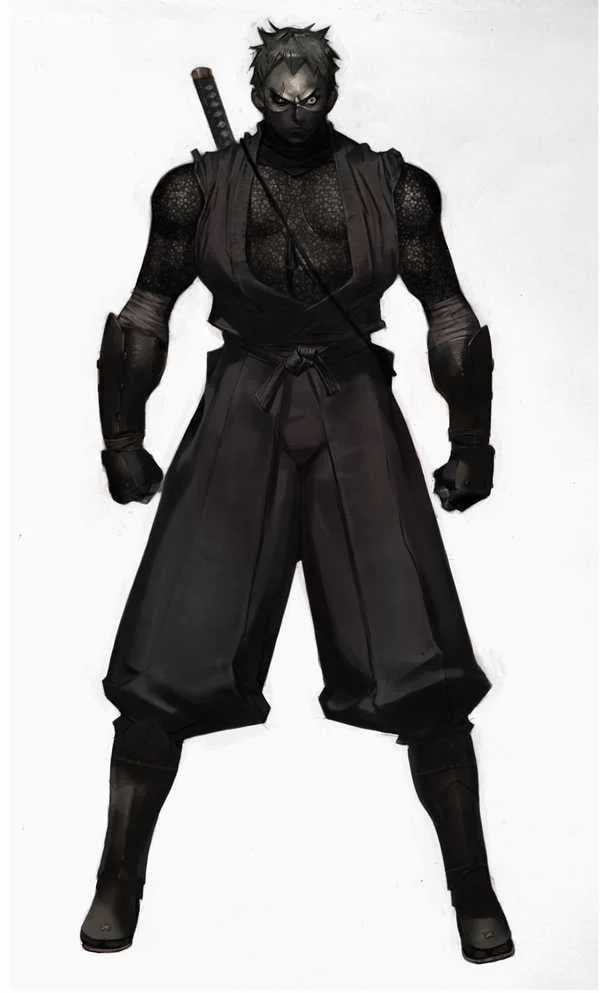Top 10 Underrated Video Game Soundtracks
It's no secret these days that video games feature some incredible music. But while some epic game scores receive lots of praise, several amazing game soundtracks get little to no attention. And since the Kelleher Bros. are all about both music and video games, here's our list of the Top 10 game soundtracks you might have missed.
One disclaimer right up front: we are talking specifically about the music in these games, not necessarily the overall quality of the games themselves. And since this is a list of underrated video game soundtracks, don't expect to see any Final Fantasy, Legend of Zelda, or Mega Man titles. No Chrono Trigger, Halo, or Metroid either.
10: TMNT IV: Turtles in Time
Let's start this list off with one of the all-time great video game soundtracks, TMNT IV: Turtles in Time! While the music in this game is unbelievably catchy and perfectly appropriate for the arcade brawler, it comes in at the #10 spot because it has already received some recognition for the killer tunes. This is a list of underrated game soundtracks after all.
With abundant musical nods to the original cartoon and previous Turtles games, Turtles in Time cranks out the radical 90's tracks including Sewer Surfin', Technodrome (Let's Kick Shell!), and Skull & Crossbones.
Similarly good: Sunset Riders (and almost any Konami game of the era)
9: Pokémon Pinball
If you weren't big on handheld games in the 90's, you might be surprised to see Game Boy titles on this list. The Kelleher Bros. were raised on Game Boy games, you see. We would have never been able to tolerate long hours of driving in the family station wagon without them. Case in point, this Kelleher family vacation favorite, Pokémon Pinball.
A great example of the lighthearted melodies that made the Game Boy some damn memorable, the music in Pokémon Pinball is almost too catchy for its own good. Built on the same game engine as Nintendo's earlier title, Kirby's Pinball Land, this game added a Pokémon skin and gameplay elements, and featured full-color visuals. There was even a rumble pack included in the cartridge, a nice little gimmick that required an additional AAA battery to generate some jolty feedback.
Similarly good: the original Pokémon Red/Blue
8: Freedom Fighters
Oh man, games don't come much more underrated than 2003's Freedom Fighters. Developed by IO Interactive, Freedom Fighters came out of nowhere to deliver the stunning third-person, squad-based shooter that we never knew we wanted. The video game equivalent of 80's cult classic film Red Dawn, the game's story is set in an alternate world history, one in which the Soviet Union invades the United States and occupies New York City.
Freedom Fighter's greatest strength is its consistent and well-developed atmosphere. New York under Soviet occupation feels appropriately dire, depressing, and bleak, as the Resistance formed by regular civilians turned freedom fighters serve as the population's only hope. A stellar soundtrack composed by Jesper Kyd goes a long way in setting the mood. Epic battle marches and Soviet choir pieces lend pomp, tribal drums build intensity, and quiet moments of minor chords give a melodic heart to the overall work. This is a game that really deserves to be played and the music it's most compelling element.
Similarly good: IO's biggest hit of the era, Hitman 2: Silent Assassin
7: Shadow of the Colossus
Much like with film, there's a wide range of video games out there. Some games offer big blockbuster spectacle (like the summer fun, popcorn flick), while others are more nuanced, contemplative, artsy work (like the award-contender, arthouse film). Depending on what's big at the moment, the debate over whether video games can truly be considered to be capital-A "Art" swings one direction or the other. But every once in blue moon, a game comes around that's so stunningly, evocative, and legitimately moving, no one doubts for a second that games can be works of art. Shadow of the Colossus is one such game.
The second game by Team Ico to be released on the PlayStation2, Shadow of the Colossus left an indelible impression on everyone who took the time to play it. While sparse on exposition and featuring very little dialogue--spoken in a fictional language too--the game manages to deliver a highly emotional tale of desperation, moral ambiguity, and one hero's indomitable spirit in the face of crushing adversity. The visuals perfectly fit the wandering, open-world feel of the gameplay and the music is equally excellent.
SotC's soundtrack not only sets the mood with foreboding tunes during its opening and cinematic breaks, it keeps pace with the action throughout the game by adjusting musical intensity based on what's happening moment to moment on-screen. Grand, sweeping overtures during battles are contrasted with genuinely haunting themes during quiet moments; this soundtrack has it all. And while words like "epic" and "awesome" get tossed around hyperbolically a lot, the scale of each colossus battle in this game unquestionably deserve such descriptors. If you haven't play this one yet, you are missing out.
Similarly good: Team Ico's other PS2 hit, and namesake, Ico
6: Super Mario Land
Ok, I know what you're thinking. And yes, the music in Super Mario games is generally pretty highly regarded. But this particular game is a special case. You see, in terms of Mario-style gameplay, Super Mario Land is actually pretty weak. Not that it's terrible, it's just not on par with the other Mario games of the era. Though that's not SML's fault. It was launch title for the original Game Boy and Nintendo hadn't quite figured out how the get the most out of their portable gray box yet.
Despite any flaws, where Super Mario Land really shines is its top-notch soundtrack, definitely the best thing about this game by leaps and bounds! Working within the limitations of the Game Boy's bleepy-bloopy audio processor, Hirokazu "Hip" Tanaka managed to craft some of the most infectiously happy video game music, ever. The main overground level melodies are solid-gold pop and even the vaguely Chinese stereotype tune is fun background music for platforming on the go. This is timeless Game Boy music if ever there was such a thing.
Similarly good: Super Mario Land 2: 6 Golden Coins
5: Super Castlevania IV
Oh man, when Konami took their Castlevania series into 16-bits, they did not mess around! Super Castlevania IV upped the ante on all fronts: drastically improved visuals, the ability to whip in eight directions, and--of course--the fantastic music.
Castlevania games are all about slaying Dracula, taking the player through a fortress of ghouls and monsters on their vampire-hunting quest. The series is much more action-oriented than horror, and yet with the monster/mythology themes throughout, the mood can get appropriately creepy when it needs to. More so than the others, Super Castlevania really hits the atmospheric sweet spot, due in large part to it's gothic soundtrack. Baroque influences and stellar organ melodies make this soundtrack shine above the competition. And then there are the upbeat tracks Castlevania games are known for in there too, just adding icing to the auditory cake.
Similarly good: Castlevania: The Adventure (Game Boy)
4: Wild Arms
From the first guitar plucks of the opening cinematic, you knew you were in for something good. A western-themed RPG with anime-styled character designs and cinematics, Wild Arms exploded onto the North American gaming scene in 1997, quickly establishing itself as the preeminent RPG of the PlayStation1 generation.... Or at least it would have, if Final Fantasy VII hadn't released been released just a few months earlier.
Undoubtably, FF7 is the reason Wild Arms is so underrated. A great RPG in its own right, Wild Arms featured a cool and timely anime aesthetic, engaging action elements usually omitted from RPGs, visuals that blended classic 2D with the latest 3D, and--most importantly--an orchestral score that made the most of the game's old west-style world. But FF7 was more than a hit, it was a cultural icon, a touchstone of Japan's artistic dominance over pop-culture in the 90's. Regardless of a game's quality, there simply was no way of competing with FF7. So Wild Arms will always be in Cloud & Company's shadow.
If you like old-school RPGs, westerns, or both, you should definitely check out Wild Arms. If not, you should at least listen to the soundtrack online.
Similarly good: Final Fantasy VII, VIII, & IX
3: Street Fighter III: 3rd Strike
The Kelleher Bros. are big Street Fighter fans, so it's not a huge surprise that a Street Fighter made it onto this list. And Street Fighter III: 3rd Strike is probably the single greatest fighting game of all time, so it deserves to be on many a Top 10. But while those in the know generally revere 3rd Strike's gameplay for its near perfection, the game's soundtrack doesn't always get the credit it deserves.
Between Street Fighter III: 2nd Impact and Street Fighter III: 3rd Strike, Capcom made a lot of audio changes. This included not only swapping out voice samples for several characters, but also replacing all the music. While this wasn't a big deal, the game's new opening menu and character-select screen tried going a new direction and featured tracks by Canadian rapper Infinite. When the game debuted in North America in 2000, this proved to be a devise choice to say the least. In fact, when I first booted up the game on Dreamcast and heard, "Let's get it on now, select and make your first pick. Let's get it on, yo. Ten, nine, eight, seven, six..." I too thought it sounded embarrassingly cheesy. After enduring plenty of corporate manufactured rap in the 90's, our entire generation had been trained to be suspicious and cynical when our entertainment spontaneously commences the busting of rhymes.
The thing is, even if you hated the rap tracks, the rest of the 3rd Strike soundtrack was solid. Drum & Bass, Rock, House, Techno, even a little bit of Jazz thrown in; there was not a single stage in the game that had weak music. And now, after years of playing 3rd Strike, I honestly even like Infinite's rap tracks. Something about this music sounds more and more appropriate with the passing of time. It's as if the composers had just nailed it too soon, before America's gaming public was quite ready. If you wrote this music off as mediocre years ago, give it another listen. I think you'll be pleasantly surprised.
Similarly good (and criminally underrated): Street Fighter EX Plus Alpha
2: Mirror's Edge
When I first saw the trailer for Mirror's Edge, I was blown away. Footage of the first-person parkour gameplay--running, jumping, swinging, sliding through a clean, well-lit urban environment--was one of the most compelling game concepts I'd ever seen. Buying the game on day one, and even receiving a Mirror's Edge messenger bag with my purchase, I just about parkour'ed my way back home to start playing right away. And the actual game was...well, not as awesome as the trailer, to be honest...but still damn cool.
Out of any Mirror's Edge failings one could mention--whether it be the mystery storyline that's completely out of place, the lack of any explanation as to why the ruling government is supposed to actually be oppressive, the inclusion of gun-wielding game mechanics that conflict with the core freerunning gameplay, the fact that Faith is the only halfway interesting or memorable character in the entire game, or the bargain bin cutscenes that not only looked cheap and terrible, but closely resembled animated car insurance ads of the time--the music was not one of them. The soundtrack was excellent!
Now don't get me wrong, despite it's flaws, I loved Mirror's Edge. The original gameplay and overall concept was so cool that even with the shaky execution, the game is well worth your time. And despite how the once hot visuals may have cooled with age, the soundtrack is still one the best in video games. A mix of ambient electronica and pulse-pounding techno, the music in Mirror's Edge fits both the utopian/dystopian setting and freerunning action, perfectly.
One thing that struck me on my first playthough was how the main musical theme was woven into the soundtrack throughout the game, just a couple bars here and there. Then upon completing the game, when the final credits role, that main theme unfolds into a full song, with lyrics and everything, performed by Swedish musician Lisa Miskovsky. It was an incredibly satisfying audio effect, like the game revealed the song as a reward for completing the story. Unforgettable.
1: Tenchu: Stealth Assassins
The Kelleher Bros. can really dig a good stealth game, whether it's a Metal Gear, Splinter Cell, Syphon Filter, etc.; there seems to be plenty of decent options. But when you want to feel like a ninja, it doesn't get any better than Tenchu: Stealth Assassins. Accept no substitutes. The first 3D game to emphasize covert tactics over action, Tenchu was the vanguard of the stealth genre.
Debuting on the PlayStation a couple months before mega-hit Metal Gear Solid, Tenchu: Stealth Assassins was bound to be overshadowed by the cinematic juggernaut. But while both were excellent stealth/action games, they actually had little in common. Metal Gear told a complicated sci-fi thriller story, rife with political/military intrigue and current real-world concerns, like nuclear disarmament and genetic engineering. Tenchu, on the other hand, was a straight-up ninja simulator, a historical fantasy set in feudal Japan. It told a minimal story focused on a feudal lord and the two ninja assassins that served him. Armed with a sword and trusty grappling hook, the game was about sneaking past guards to find and eliminate your target. Or maybe just deliver a letter. You know, whatever errands Lord Gohda needed done that day.
Of course, Tenchu: Stealth Assassins tops our list not for its revolutionary stealth gameplay, but for its insanely good soundtrack. An incredible mix of traditional Japanese musical elements with rock, jazz, orchestral, electronic, and who-knows-what-else, Tenchu's music was unlike anything we had heard before. In fact, we still haven't really heard anything like it since! A perfect fit for the game's setting and tone, the soundtrack was so unique, it challenged our notions about what kind of music can even work in a video game.
Tenchu composer Noriyuki Asakura had already worked on samurai anime series Rurouni Kenshin and his experience shines through on these tracks. He really pushes the envelope much farther than anyone would notice. For example, the game's opening song, "Add'ua": most westerners would just assume that this ninja game's theme has Japanese lyrics. However, the song is actually sung in Hausa, a language native to Niger and Nigeria, predominately spoken as a second language across Western Africa. I mean, seriously? Awesome! Guess we can add another incorporated style to the list: Hausa music.
The true ninja never apologizes for terrible puns.
Sadly, in the game's sequel, Tenchu 2: Birth of the Stealth Assassins, developers chose to remove background music from all game levels. The idea was to make the gameplay more immersive by emphasizing in-game sound effects, having the player focus as much on their sense of hearing as on their sight. While this was a cool concept, it was nearly impossible to implement well, due to the PS1's technical limitations. By removing the unique music, the sequel only managed to make its levels feel more dull and further highlight the dreadfully jaggy polygon visuals. While Tenchu 2 did introduce cool new characters, had a far better story, and even featured a level editor for making your own custom levels, the lack of music really hurt the game's lasting appeal. (Plus the title's too long.)
If you haven't played Tenchu before, I highly recommend booting up a PS1 and giving it a playthrough. If you just want to hear the killer tunes, pull them up online for a quick listen. A classic among classics, Tenchu: Stealth Assassins is the most underrated video game soundtrack of all time.













